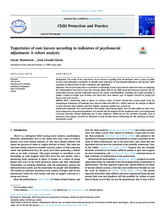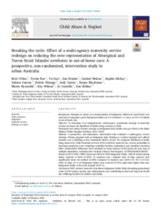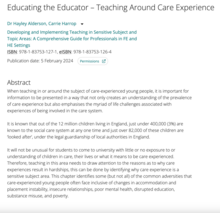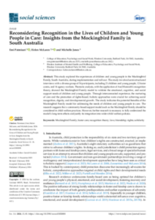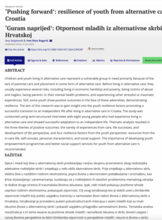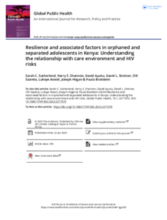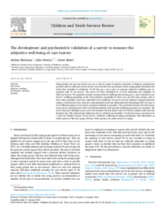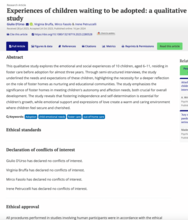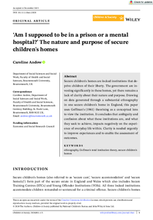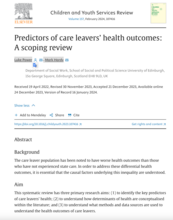Displaying 1 - 10 of 713
The present study conducted in Spain analyzed the relationship of care leavers once they become adults with the child protection system as parents, the penitentiary system, and residential resources for people with disabilities, analysing the results according to gender, country of origin, type of foster care when they were minors, type of support received as young care leavers and years in care.
The objective of this study was to determine if an Indigenous-led, multi-agency, partnership redesign of maternity services at a maternity hospital in Brisbane, New Zealand would decrease the likelihood of Indigenous babies being removed at birth and being placed in out-of-home care..
This chapter identifies some (but not all) of the common adversities that care-experienced young people often face living in England inclusive of changes in accommodation and placement instability, insecure relationships, poor mental health, disrupted education, substance misuse, and poverty in order to help educators understand the myriad of life challenges facing those with care experience.
This study explored the experiences of children and young people in the community-based support model of the Mockingbird Family, in South Australia, during implementation and roll-out. The study involved semi-structured interviews with a diverse group of 54 participants, including 21 children and young people, 12 foster carers, and 14 agency workers.
The aim of this research was to gain insight into the youth resilience factors promoting a successful transition to an independent life after living in alternative care in Croatia. The study was conducted using semi-structured interviews with eight young people who had experience living in alternative care and showed successful adaptation to an independent life.
This longitudinal study uses a causal effect model to examine, through decomposition, the relationship between care environment and HIV risk factors in orphaned and separated adolescents and youths (OSAY) in Uasin Gishu County, Kenya; considering resilience, social, peer, or family support, volunteering, or having one’s material needs met as potential mediators. The authors analysed survey responses from 1105 OSAY age 10–26 living in Charitable Children’s Institutions (CCI) (orphanages) and family-based care settings (FBS).
Young people who age out of state care are at risk of a range of negative outcomes. In England, national data provides only five indicators of care leavers’ lives and there are no measures of how young people themselves feel about their transition to adulthood. To fill this gap a new survey to measure subjective wellbeing was coproduced with 31 care leavers. The survey was then distributed by 21 local authorities and completed by 1804 care leavers.
This qualitative study explores the emotional and social experiences of 10 children, aged 6–11, residing in foster care in Italy before adoption for almost three years. Through semi-structured interviews, the study underlined the needs and expectations of these children, highlighting the necessity for a deeper reflection on the role of foster homes as nurturing and educational communities.
Drawing on data generated through a substantial ethnography in one secure children's home in England, this paper uses Goffman's (1961) theorising as a conceptual lens to view the institution.
This systematic review contained studies that were mostly based in the U.S. and had three primary research aims: (1) to identify the key predictors of care leavers’ health; (2) to understand how determinants of health are conceptualised within the literature; and (3) to understand what methods and data sources are used to understand the health outcomes of care leavers.

